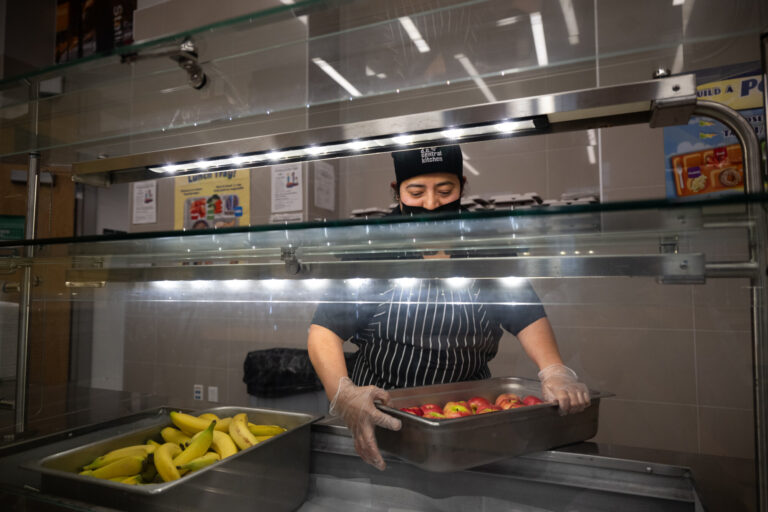On Apr. 16, Finance Minister Chrystia Freeland delivered the 2024 Federal Budget in the House of Commons. The Fairness for Every Generation budget introduced $52.9 billion in new spending, including $1 billion over five years for a new National School Food Program. According to the budget, the program aims to provide meals to 400,000 children across Canada.
Canada is the only G7 nation without a national school food program. Erin Moraghan, CEO of Nutrition for Learning, said the organization has been working with the Coalition for Healthy School Food to lobby the federal government.
“We’ve been advocating for a national vision on this for over a decade. It’s something folks have been asking about for a long time,” she said.
In a statement from Employment and Social Development Canada, a spokesperson said the program was created based on feedback from ministerial roundtables and site visits, targeted thematic virtual roundtables with over a hundred stakeholders, children and youth engagement sessions and a public online questionnaire
“From January 2022 to June 2023, the Minister of Families, Children and Social Development and the Minister of Agriculture and Agri-food Canada undertook an engagement process to hear from stakeholders and the general public about key considerations for developing a National School Food Policy,” the spokesperson said in the statement.
The budget announcement said the program could launch as early as the 2024-25 school year but did not include details on how the program will be rolled out to schools. The announcement did note that the federal government would work with provincial, territorial and Indigenous governments to develop and launch the program.
Moraghan said she is not sure how the program could be launched within this short time frame.
“It’s hard to understand how it could be because we’re talking about pulling the trigger on not just the flow of funding, but also understanding the strategy. I was on a call yesterday with the Coalition for Healthy School Food, and there are currently no answers,” she said.
“It seems to me that the next step is for the feds to stack hands with provinces on strategy. We have to wait and see,” Moraghan said.
Moraghan is also concerned about the proposed number of students the National School Food Program will serve.
“This federal funding will allow 400,000 new students to access student nutrition, but there are seven million children in Canada. There are just a million question marks about what that looks like. What the feds are talking about sounds to me like a targeted program with some guardrails around it that we just don’t understand yet,” she said.
Another area of concern is how the program will be delivered. In Ontario, student nutrition programs like Nutrition for Learning are universally accessible instead of being needs-based. Moraghan said universally accessible programs are preferred because they reduce the stigma of students and families dealing with food insecurity.
“Not all provinces have adopted universal access. Quebec uses a pay-what-you-can sliding scale. There are different models out there, but I’ve seen how universal access can be the secret sauce to making sure that the kids who need the program are accessing it,” she said.
The proposed National School Food Program only addresses in-school nutrition needs, which Faune Lang, Food4Kids Fund Development & Community Engagement Manager, said is a concern. Food4Kids provides nutritious food for 1,200 students and their families on weekends and school breaks when in-school nutrition programs are not available.
“It is a step forward in acknowledging that childhood hunger exists, and as a community, we need to step up. Sadly, the 1,200 and growing severely food-insecure children we serve at Food4Kids Waterloo Region have been excluded from any of the proposed funding,” said Lang.
Moraghan added that while funding for 400,000 students is a welcome announcement, the proposed program is still far from meeting the needs of all students across Canada. Nutrition for Learning provides food for over 100,000 students across 175 schools in Waterloo Region.
“I know that we’ve never had to run faster to try and find new funding strategies to meet the need locally. The community conversation and advocacy around an equitable school day has to include access to food that’s needed to learn because whatever reason a young person is hungry—it shouldn’t matter. They should have what they need to get through the school day,” Moraghan said.

